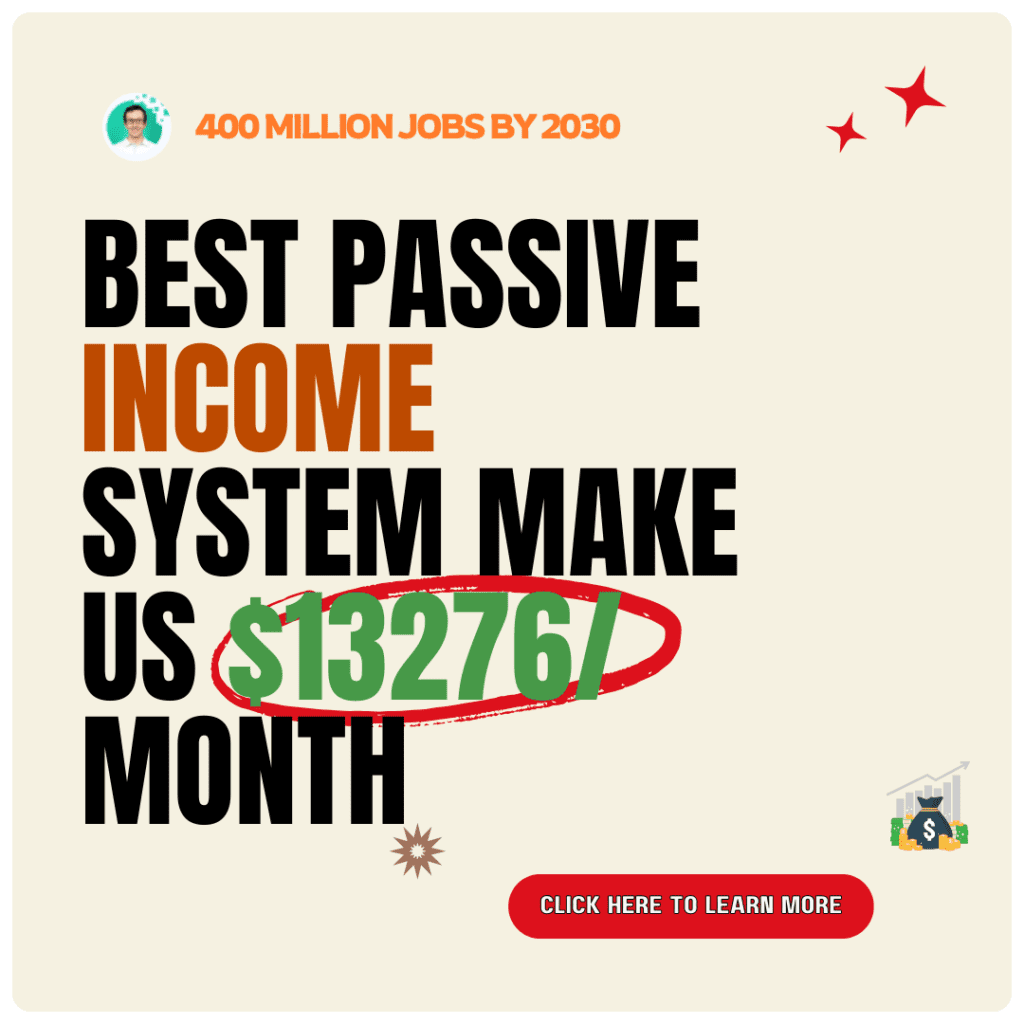How to Start Your Freelancing Career and Build a Winning Portfolio
Freelancing has become a popular and adaptable job option in today’s continuously changing professional scene for many people looking for independence and creative freedom. Whether you are a writer, designer, programmer, or any other skilled professional, freelancing offers a unique opportunity to showcase your talents, explore diverse projects, and control your own destiny.
However, stepping into the freelance industry can be intimidating, particularly if you don’t know where to start or how to create a compelling portfolio that will draw clients and set you apart from the competitors. For this reason, we’ve created this in-depth guide to assist you in navigating the early phases of your freelance career and building a portfolio that stands out.
In this blog, we will delve into the essential steps for starting your freelancing career, including identifying your niche, establishing your online presence, and crafting a portfolio that impresses potential clients. Let’s unlock the secrets to launching a successful freelancing career and embark on a path filled with creative opportunities and professional growth.
My Best Recommended & Proven Way to Make $100 Daily – Watch THIS FREE Training to START >>
1. Finding Your Niche
One of the most crucial steps in starting a freelance business is determining your area of expertise. Rather than being a jack of all trades, specializing in a specific area allows you to focus your skills and become an expert in your chosen field. Assess your strengths, passions, and experiences to determine the niche that aligns with your expertise. You can target particular clientele and develop your services to suit their demands by focusing more narrowly. Keep in mind that having a clearly defined specialty makes you stand out from the competition and establishes you as a respected expert in your field.
2. Setting Up Your Brand
Once you’ve identified your niche, it’s time to establish your brand. Your brand contains your beliefs, personality, and distinctive selling propositions; it is more than just a logo or a snappy tagline. Create a memorable brand narrative that appeals to your target market and accurately portrays the caliber of your work. Develop a cohesive visual identity through a professional website, well-designed business cards, and consistent social media presence. Remember, a strong brand not only attracts clients but also helps build trust and credibility in the competitive freelancing market.
3. Networking and Marketing Yourself
The success of your freelance career is critically dependent on your ability to network. Actively engage in industry events, conferences, and online communities to connect with like-minded professionals and potential clients. Utilize social media platforms and professional networking sites to showcase your expertise, share valuable content, and build meaningful relationships. Don’t be afraid to promote yourself; to show off your skills, showcase your accomplishments, references, and portfolio. By consistently marketing yourself and nurturing relationships, you’ll expand your professional network and open doors to exciting freelance opportunities.
4. Finding Clients and Projects
Securing clients and projects is a vital aspect of freelancing. Utilize your current network to start by contacting friends, coworkers, and acquaintances who might need your skills. Additionally, explore online freelance platforms, job boards, and industry-specific websites to discover potential clients. Craft a persuasive pitch tailored to their needs, showcasing how your skills and experience can add value to their projects. Consistent marketing efforts, referrals, and maintaining a strong online presence will help attract clients and ensure a steady stream of projects in your freelancing career.
5. Building a Winning Portfolio
Your portfolio serves as a showcase of your work and a powerful tool for attracting clients. Curate a selection of your best projects that highlight your expertise and range of skills. Make sure your portfolio is aesthetically pleasing, well-organized, and simple to use. Include case studies, testimonials, and client feedback to demonstrate the impact of your work. Regularly update your portfolio with new projects to showcase your growth and versatility as a freelancer. Remember, a well-crafted portfolio can make a lasting impression and increase your chances of securing exciting freelance opportunities.
6. Ongoing Learning and Development
In the fast-paced world of freelancing, continuous learning is key to staying relevant and expanding your skill set. Invest in your professional development by attending workshops, taking online courses, and staying updated with industry trends. Embrace new technologies and tools that enhance your abilities and improve your efficiency. Continuous learning is important because it helps you stay current and improves your worth to clients, which will help your freelance work succeed in the long run.
7. Managing Your Finances
As a freelancer, mastering financial management is essential for a thriving career. Set up a separate business bank account to track income and expenses. Implement a robust invoicing system and establish clear payment terms with clients. Budget wisely, save for taxes, and regularly review your pricing strategy to ensure profitability. Seeking professional advice from an accountant or financial advisor can provide valuable insights and help you maintain a healthy financial foundation as a freelancer.
8. Overcoming Challenges
Freelancing comes with its fair share of challenges, but with the right mindset, you can overcome them. Embrace uncertainty, adapt to changing market demands, and continually seek opportunities for growth. Develop resilience, practice time management, and maintain a healthy work-life balance. Seek support from fellow freelancers or join online communities to share experiences and learn from others’ strategies. By facing challenges head-on and maintaining a positive attitude, you can navigate the ups and downs of freelancing, turning obstacles into stepping stones for success.
9. Planning for Growth
As a freelancer, it’s crucial to have a long-term vision and plan for growth. Set clear goals and outline actionable steps to achieve them. Invest in continuous skill development, consider expanding your service offerings, and explore collaborative opportunities. Regularly evaluate and adjust your strategies to adapt to the evolving market, ensuring sustainable growth and a rewarding freelancing career.
My Best Recommended & Proven Way to Make $100 Daily – Watch THIS FREE Training to START >>
Finding Your Niche
Finding your specialization is a crucial first step to developing a prosperous and satisfying career in the huge world of freelancing. By honing in on a specific area of expertise, you can distinguish yourself, attract the right clients, and excel in your chosen field. Here are some key tips to help you discover and embrace your niche:
- Identify your strengths and passions: Take stock of your skills, experiences, and interests. What are you genuinely passionate about? Where do your talents shine? Pinpoint the areas where you have a natural inclination or extensive knowledge.
- Research market demand: Conduct thorough market research to assess the demand for your potential niche. Are there existing gaps or untapped opportunities? Look for areas where your skills align with the needs of potential clients.
- Assess competition: Analyze the competition within your chosen niche. While some competition is healthy, ensure there is enough room for you to differentiate yourself and carve out a unique space. Consider niches that allow you to leverage your distinctive skills and offer a competitive advantage.
- Narrow your focus: Refine your niche to create a specialized and focused offering. Avoid being a generalist. Instead, narrow down your services to cater to a specific audience or industry. This specialization will make you more appealing to potential clients seeking experts in that specific area.
- Experiment and iterate: Don’t be afraid to test the waters and explore different niches. Experiment with various projects and clients to gain insights into what truly resonates with you. Be open to adjusting your niche as you gather more experience and feedback.
- Embrace continuous learning: As you dive into your chosen niche, commit to continuous learning and improvement. Stay updated with the latest industry trends, technologies, and best practices. This ongoing dedication to professional growth will position you as an expert and help you stay ahead of the competition.
Finding your niche is an ongoing process that requires self-reflection, market awareness, and adaptability. Accept the process of discovery and keep in mind that as you sharpen your focus, more doors will open up for your professional success as a freelancer.
Setting Up Your Brand
For a freelancer to stand out in a crowded market, building a strong and distinctive brand is essential. Your brand encompasses your identity, values, and the overall perception of your work. Here are some essential pointers to assist you in developing a strong brand as a freelancer:
- Establish your brand’s identity: Clarifying your mission, values, and selling propositions should be your first step. What sets you apart from others in your industry? Identify the core aspects that define your brand’s personality and align with your target audience.
- Craft a captivating brand story: Share your journey, inspirations, and the purpose behind your work. Craft a compelling narrative that resonates with potential clients and reflects the passion and expertise you bring to your freelancing career.
- Develop a cohesive visual identity: Design a professional logo, choose a color palette, and select typography that represents your brand effectively. Consistency across all visual elements, from your website to your business cards, creates a cohesive and memorable brand experience.
- Establish an online presence: Create a professional website that showcases your portfolio, highlights your skills, and provides a seamless user experience. Leverage social media platforms to engage with your audience, share valuable content, and build a community around your brand.
- Communicate your expertise: Position yourself as an authority in your niche by consistently sharing your knowledge and expertise. Publish blog articles, contribute to industry publications, or host webinars and workshops to establish yourself as a trusted resource in your field.
- Foster authentic connections: Actively engage with your audience, respond to inquiries, and provide exceptional customer service. Cultivate meaningful relationships with clients, collaborators, and fellow freelancers to expand your network and foster a positive reputation.
- Continuously refine and evolve: Your brand is not static; it should grow and adapt alongside your freelancing career. Regularly assess your brand’s effectiveness, gather feedback from clients, and be open to making adjustments to ensure your brand remains relevant and aligned with your goals.
Your chances of success as a freelancer increase if you put time and effort into building a solid brand. A compelling brand will attract clients, build trust, and help you differentiate yourself in a crowded market. Accept the branding process as a chance to highlight your special skills and make an impression on individuals who come into contact with your work.
Networking and Marketing Yourself
Networking and effectively marketing yourself are essential components of building a thriving freelancing career. By actively connecting with others in your industry and strategically promoting your skills and services, you can expand your professional network and attract valuable clients. Here are some key tips to help you excel in networking and marketing as a freelancer:
- Attend industry events: Participate in conferences, workshops, and meetups related to your field. These events provide opportunities to meet like-minded professionals, exchange ideas, and establish valuable connections. Be approachable, engage in conversations, and seize the chance to showcase your expertise.
- Utilize online platforms: Leverage the power of social media and professional networking sites to expand your reach. Create a strong online presence by sharing industry insights, showcasing your work, and engaging with your audience. Utilize platforms like LinkedIn, Twitter, and relevant online communities to connect with potential clients and peers.
- Nurture relationships: Networking is not just about making connections; it’s about building genuine relationships. Focus on fostering authentic connections with fellow freelancers, clients, and industry influencers. Cultivate a mutually beneficial network by offering support, sharing resources, and collaborating on projects whenever possible.
- Develop an elevator pitch: Craft a concise and compelling introduction that effectively communicates who you are and what you do. This elevator pitch should highlight your unique skills, experience, and the value you bring to clients. Be prepared to share it confidently when meeting potential clients or during networking events.
- Showcase your expertise: Position yourself as an expert by sharing your knowledge and insights. Write guest blog posts, contribute to industry publications, or create valuable content on your own blog or social media channels. Demonstrating your expertise builds credibility and attracts attention from potential clients.
- Ask for referrals: Don’t be afraid to ask satisfied clients for referrals or testimonials. Positive word-of-mouth can significantly boost your credibility and lead to new opportunities. Offer incentives or referral programs to encourage clients to recommend your services to others.
- Engage in strategic outreach: Proactively reach out to potential clients or companies that align with your target audience. Craft personalized and compelling pitches that clearly articulate how your skills can benefit their specific needs. Tailor your messages to showcase your understanding of their industry and the value you can provide.
Remember, effective networking and marketing require consistent effort and a genuine interest in building meaningful connections. By investing time and energy into building relationships and showcasing your expertise, you can attract the right clients, foster collaborative opportunities, and establish a solid foundation for long-term success as a freelancer.
Finding Clients and Projects
One of the most important aspects of freelancing is consistently securing clients and projects to sustain and grow your career. However, finding the right clients and projects can be a challenging task. To help you navigate this process effectively, here are some key tips for finding clients and projects as a freelancer:
- Leverage your network: Start by tapping into your existing network of contacts, friends, and colleagues. Let them know about your freelance services and ask for referrals. Personal connections can often lead to valuable client opportunities.
- Utilize online platforms: Explore freelance job boards, platforms, and websites specifically designed to connect freelancers with clients. Create a compelling profile that showcases your skills, experience, and portfolio. Regularly browse and apply for relevant projects that align with your expertise.
- Attend industry-specific events: Attend conferences, trade shows, and networking events in your industry. These events provide opportunities to meet potential clients face-to-face and establish meaningful connections. Be prepared with your elevator pitch and business cards to leave a lasting impression.
- Optimize your online presence: Maintain a professional and up-to-date website that showcases your portfolio, skills, and contact information. Utilize search engine optimization (SEO) techniques to increase your online visibility and make it easier for potential clients to find you.
- Specialize in a niche: Narrowing your focus to a specific niche can help you stand out from the competition and attract clients seeking specialized expertise. Position yourself as an expert in your niche through targeted marketing and content creation.
- Join relevant communities: Engage with online communities, forums, and social media groups related to your industry or niche. Participate in discussions, provide valuable insights, and share your expertise. Building a reputation within these communities can lead to client referrals and project opportunities.
- Build a strong online portfolio: Curate a compelling portfolio that showcases your best work and demonstrates your capabilities to potential clients. Include case studies, testimonials, and quantifiable results whenever possible. A well-organized and visually appealing portfolio can significantly enhance your chances of attracting clients.
- Be proactive and persistent: Don’t wait for clients to find you. Take the initiative to reach out to potential clients directly, either through email, social media, or in-person meetings. Craft personalized pitches that highlight the value you can bring to their projects. Follow up consistently and stay persistent in your pursuit.
Remember, finding clients and projects requires a proactive and multifaceted approach. Utilize a combination of strategies, maintain a strong online presence, and continuously refine your pitching and marketing techniques. By implementing these key tips, you can increase your chances of finding rewarding clients and exciting projects that align with your freelancing goals.
My Best Recommended & Proven Way to Make $100 Daily – Watch THIS FREE Training to START >>
Building a Winning Portfolio
A well-crafted portfolio is a powerful tool for freelancers to showcase their skills, experience, and capabilities. It not only serves as a visual representation of your work but also plays a crucial role in attracting clients and securing projects. Here are some essential pointers to take into account when you create a successful portfolio:
- Choose your finest work: Select the projects that are the strongest and most pertinent for your portfolio. Highlight projects that demonstrate your expertise, creativity, and problem-solving abilities. Quality matters more than quantity, so choose a few exceptional pieces that showcase your versatility.
- Organize and structure effectively: Create a clear and intuitive structure for your portfolio. Arrange your projects in a logical order, such as by industry, type of work, or chronology. Make it easy for clients to navigate and find the information they need. Consider using categories or sections to streamline the browsing experience.
- Show diversity and range: Include a variety of projects that demonstrate your range of skills and expertise. Showcase different types of work, such as branding, web design, or print collateral, to highlight your versatility. Demonstrate your ability to adapt to different client needs and industries.
- Give background information and specifics: For each project, give a succinct explanation outlining the objectives, difficulties, and your involvement. Share insights into your design process, strategy, and the results achieved. Quantify the impact whenever possible, such as increased website traffic or positive client feedback.
- Display visuals effectively: Ensure your portfolio is visually appealing and showcases your work in the best light. Use high-quality images, screenshots, or videos to present your projects. Optimize the layout, typography, and color scheme to create a cohesive and professional aesthetic.
- Include client testimonials: Testimonials and reviews from satisfied clients add credibility to your portfolio. Incorporate positive feedback and testimonials that highlight the value you provided and the impact of your work. Choose testimonials that are specific, detailed, and showcase the results achieved.
- Update regularly: Keep your portfolio up to date by regularly adding new projects and removing outdated ones. Continuously refine your portfolio as you complete new work and gain more experience. Highlight your latest and most impressive projects to demonstrate your growth and evolution as a freelancer.
- Seek feedback: Ask for feedback from trusted colleagues, mentors, or clients to get an outside perspective on your portfolio. Their insights can help you identify areas for improvement and ensure your portfolio effectively communicates your skills and expertise.
Remember, your portfolio is a dynamic tool that should evolve with your freelancing career. Regularly review, update, and refine it to reflect your growth and demonstrate your ability to deliver exceptional work. A winning portfolio will not only impress potential clients but also differentiate you from your competitors and pave the way for exciting freelancing opportunities.
Ongoing Learning and Development
In the quick-paced freelance field, you must constantly learn and develop professionally if you want to stay current with the market and deliver top-notch work to your clients. Embracing a mindset of lifelong learning can enhance your skills, expand your knowledge, and open doors to new opportunities. Here are some key tips for ongoing learning and development as a freelancer:
- Identify learning goals: Start by setting clear learning goals that align with your career aspirations. Identify areas where you want to improve or acquire new skills. This could include mastering new software, deepening your industry knowledge, or expanding into related disciplines.
- Stay informed about industry trends: Keep a pulse on the latest trends, emerging technologies, and best practices in your industry. Follow relevant blogs, subscribe to industry newsletters, and join professional associations or online communities. Stay curious and be proactive in staying up-to-date with the changes and advancements in your field.
- Attend workshops and courses: Participate in workshops, webinars, and online courses that offer valuable insights and practical skills. Look for both free and paid learning opportunities that align with your learning goals. A variety of courses are available to help you increase your skills on websites like Udemy, Coursera, and LinkedIn Learning.
- Seek mentorship and guidance: Connect with experienced professionals in your field who can serve as mentors or advisors. Their advice can assist you in overcoming obstacles, offer insightful criticism of your work, and provide perspectives drawn from personal experience. Reach out to them through networking events, online communities, or industry-specific platforms.
- Collaborate with others: Take part in group projects or freelancer communities where you may exchange ideas, offer encouragement, and gain knowledge from other freelancers. Collaboration facilitates information sharing, cultivates a growth mindset, and enables you to gain insight from the various viewpoints of others.
- Engage in self-reflection and feedback: Regularly reflect on your work and seek feedback from clients, peers, and mentors. Analyze your strengths and areas for improvement. Actively seek constructive criticism and use it as an opportunity for growth and development.
- Experiment with personal projects: Set aside time for personal projects that allow you to explore new techniques, experiment with different styles, and push your creative boundaries. Personal projects offer a platform for self-expression and may result in unanticipated growth and learning possibilities.
- Stay adaptable and embrace change: Embrace a growth mindset and be open to change. The freelancing landscape is continuously evolving, and being adaptable to new technologies, trends, and client demands will help you stay relevant and competitive.
Remember, ongoing learning and development are not one-time events but a continuous journey. Embrace the mindset of lifelong learning, prioritize your professional growth, and invest in acquiring new skills and knowledge. By continuing to be interested, adaptable, and committed to self-improvement, you can steadily raise your value as a freelancer and position yourself for long-term success.
Managing Your Finances
Effective financial management is crucial for freelancers to maintain a stable and prosperous career. As an independent worker, you have the responsibility to manage your income, expenses, taxes, and savings. Here are some crucial pointers to assist you in navigating the realm of freelancing finances successfully:
- Establish a budget: Start by putting together a thorough budget that details your monthly income and outgoings. Track your earnings and categorize your expenditures to gain a clear understanding of your financial situation. This will guarantee that you distribute money properly and help you make informed judgments.
- Separate business and personal finances: Establish separate bank accounts for your business and personal finances. This separation will make it easier to track your business income, expenses, and tax obligations. It also provides a clear distinction between your personal and professional finances, ensuring better financial organization.
- Set aside for taxes: Unlike traditional employment, freelancers are responsible for their own taxes. Set aside a portion of your earnings to cover income tax, self-employment tax, and any applicable business taxes. Consult with a tax professional to understand your tax obligations and make quarterly estimated tax payments to avoid penalties.
- Track and invoice clients: Implement a system to track your work hours and billable tasks accurately. Use online platforms or software to create professional invoices and ensure prompt payment from clients. Consistently follow up on unpaid invoices and maintain a record of all financial transactions for proper bookkeeping.
- Plan for irregular income: Freelancers often experience irregular income streams. Take this into account when creating a budget and managing your finances. Consider building an emergency fund to cover unexpected expenses and periods of low income. This financial cushion will provide peace of mind during lean months.
- Save for retirement: As a freelancer, you are responsible for planning your retirement savings. Set up a retirement account, such as an Individual Retirement Account (IRA) or Simplified Employee Pension (SEP) IRA, and contribute regularly. Start saving early to benefit from the power of compound interest over time.
- Invest in professional accounting software: Utilize accounting software or online tools to simplify your financial management processes. These tools can automate invoicing, expense tracking, and generate financial reports. They provide a clear overview of your business finances and save you valuable time during tax season.
- Seek professional guidance: Consider working with an accountant or financial advisor who specializes in working with freelancers. They can provide valuable insights, help optimize your tax strategy, and guide you in making informed financial decisions for your business.
Remember, managing your finances as a freelancer requires discipline, organization, and proactive planning. By implementing these key tips, you can gain control over your financial health, maximize your earnings, and pave the way for long-term financial stability in your freelancing career.
Overcoming Challenges
Freelancing offers numerous advantages, such as freedom and flexibility, but it also presents unique challenges that can test your resilience and determination. To thrive in the freelancing world, it’s important to proactively tackle these challenges and find effective solutions. Here are some key tips to help you overcome the common hurdles faced by freelancers:
- Embrace a growth mindset: Approach challenges with a positive and growth-oriented mindset. View obstacles as opportunities for learning and personal development. Cultivate a mindset that values persistence, adaptability, and continuous improvement. By adopting this perspective, you can transform challenges into stepping stones for success.
- Prioritize self-discipline and time management: Freelancers often face the challenge of managing their own time and maintaining focus amidst distractions. Establish a routine, set clear work boundaries, and create a dedicated workspace. Use productivity techniques, such as time blocking or the Pomodoro Technique, to manage your time effectively and enhance your productivity.
- Develop effective communication skills: Communication plays a vital role in freelancing, both with clients and fellow freelancers. Enhance your communication skills to clearly articulate your ideas, manage client expectations, and negotiate project terms. Active listening, prompt responsiveness, and clarity in written and verbal communication are essential for building strong client relationships.
- Build a support network: Freelancing can sometimes feel isolating. Seek out like-minded individuals through freelancer communities, online forums, or local meetups. Connect with fellow freelancers who can provide support, share insights, and offer guidance. A support network can provide a sense of camaraderie and help you navigate challenges more effectively.
- Diversify your client base: Relying on a single client or a small pool of clients can leave you vulnerable to fluctuations in work availability. Aim to diversify your client base to reduce the risk of sudden income loss. Continuously market your services, expand your network, and actively seek new client opportunities to maintain a steady stream of projects.
- Develop a financial buffer: Freelancers often face income variability, which can lead to financial stress during lean periods. Establish an emergency fund to provide a financial cushion during challenging times. Set aside a portion of your earnings to build savings that can sustain you during periods of low or no income.
- Continuously upgrade your skills: Stay ahead of the curve by investing in your professional development. Regularly upgrade your skills, stay abreast of industry trends, and embrace emerging technologies. This ongoing learning will help you adapt to changing client demands, offer competitive services, and stand out in a crowded freelance marketplace.
- Seek balance and self-care: Freelancing can sometimes blur the boundaries between work and personal life. It’s essential to prioritize self-care, maintain a healthy work-life balance, and avoid burnout. Take breaks, exercise regularly, nurture personal relationships, and engage in activities that recharge your energy and creativity.
Remember, overcoming challenges is an inherent part of the freelancing journey. By adopting a proactive approach, seeking support, and continuously improving yourself, you can navigate these obstacles with resilience and emerge stronger. Embrace the opportunities for growth and learning that challenges present, and use them as stepping stones to create a successful and fulfilling freelancing career.
Planning for Growth
As a freelancer, planning for growth is essential to take your career to new heights and achieve long-term success. Whether you want to expand your client base, increase your income, or diversify your services, strategic planning is crucial. Here are some key tips to help you effectively plan for growth:
- Define your goals: Start by clearly defining your growth goals. Identify what you want to achieve in your freelancing career, whether it’s reaching a specific income milestone, expanding into new markets, or building a team. Setting specific, measurable, attainable, relevant, and time-bound (SMART) goals will provide a clear direction for your growth journey.
- Conduct a SWOT analysis: Assess your strengths, weaknesses, opportunities, and threats (SWOT) to gain insights into your current position and potential areas for growth. Identify your unique strengths that set you apart from competitors and opportunities in the market. Address any weaknesses or threats that may hinder your growth and develop strategies to overcome them.
- Identify target markets and niches: Determine your target markets and identify potential niches within those markets. Focusing on specific industries or target audiences can help you position yourself as an expert and attract clients seeking specialized services. Research the demand, competition, and trends within your chosen markets to identify lucrative growth opportunities.
- Expand your service offerings: Consider diversifying your services to cater to a broader range of client needs. Assess the skills and expertise you possess and explore opportunities to expand your offerings. This may involve acquiring new skills, collaborating with other freelancers, or partnering with complementary service providers to offer comprehensive solutions.
- Develop a marketing strategy: A well-defined marketing strategy is vital to attract new clients and promote your services. Identify your target audience, craft a compelling value proposition, and develop a strong online presence through a professional website, social media, and content marketing. Utilize various marketing channels to reach your target market effectively.
- Enhance your online presence: Invest in your online presence to establish credibility and visibility. Optimize your website and online profiles with relevant keywords to improve search engine rankings. Showcase your portfolio, client testimonials, and achievements to build trust with potential clients. Actively engage with your audience through content creation and participation in online communities.
- Collaborate and network: Collaborate with other freelancers, agencies, or professionals in related fields to expand your network and access new opportunities. Networking events, industry conferences, and online communities can help you connect with potential clients, partners, and mentors who can support your growth journey.
- Continuously learn and adapt: Stay abreast of industry trends, emerging technologies, and evolving client needs. Invest in your professional development through courses, workshops, and conferences. Embrace a mindset of continuous learning and adaptability to remain competitive and position yourself as a trusted expert in your field.
Remember, planning for growth requires a combination of strategic thinking, market research, and proactive action. By setting clear goals, identifying opportunities, expanding your services, and enhancing your online presence, you can position yourself for sustainable growth and propel your freelancing career to new heights. Regularly review and adjust your growth plans to stay agile and responsive to market changes.
Conclusion
Embarking on a freelancing career is an exciting and fulfilling journey, but it also comes with its own set of challenges. By following the key tips discussed in this guide, you can set yourself up for success and build a thriving freelance business.
Finding your niche allows you to specialize and differentiate yourself in a competitive market. Setting up your brand establishes a strong professional image that attracts clients. Networking and marketing yourself help you expand your reach and build valuable connections. Finding clients and projects is crucial for maintaining a steady stream of work. Building a winning portfolio showcases your skills and expertise. Ongoing learning and development keep you ahead of the curve. Managing your finances ensures financial stability. Overcoming challenges strengthens your resilience. Planning for growth propels your career forward.
Remember, freelancing requires a proactive and adaptable approach. Embrace a growth mindset, seek continuous improvement, and stay focused on your goals. As you navigate the freelancing landscape, remember to prioritize your well-being and maintain a healthy work-life balance.
With dedication, perseverance, and the tips outlined in this guide, you have the tools to create a successful and fulfilling freelancing career. Embrace the freedom, flexibility, and endless possibilities that freelancing offers, and let your unique talents shine in the freelance world.
My Best Recommended & Proven Way to Make $100 Daily – Watch THIS FREE Training to START >>
Thanks for reading my article on “How to Start Your Freelancing Career and Build a Winning Portfolio“, hope it will help!














